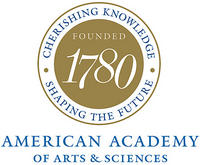Renowned analytical chemist Alan Marshall named a fellow of American Academy of Arts and Sciences
Alan G. Marshall, one of Florida State University’s most distinguished researchers, has been elected a fellow of the American Academy of Arts and Sciences, joining 197 other fellows and foreign honorary members in the Class of 2013.

"It is indeed humbling to join a fellowship that started with George Washington, Thomas Jefferson and Ben Franklin and whose current chemist members include several of my own mentors,” Marshall said.
“It is indeed humbling to join a fellowship that started with George Washington, Thomas Jefferson and Ben Franklin and whose current chemist members include several of my own mentors,” Marshall said. “I gratefully acknowledge the contributions of my 150 present and former research group members for their creative and penetrating advances in both instrumental techniques and applications ranging from petroleum to proteins. What keeps us going is the desire to see what's around the next scientific corner.”
Marshall, world-renowned for his pioneering work in co-inventing and developing Fourier transform ion cyclotron resonance (FT-ICR) mass spectrometry — a revolutionary chemical analysis technique — is director of the university’s Ion Cyclotron Resonance Program at the National High Magnetic Field Laboratory at FSU.
“Alan Marshall is one of the nation’s leading analytical chemists, whose research has a broad impact, from pure chemistry to biomedicine to analyzing the properties and composition of petroleum,” said Tim Logan, chair of Florida State’s Department of Chemistry and Biochemistry. “He is very deserving of this award, which recognizes national leaders in all fields of science, the arts and humanities. We are extremely fortunate to have a scientist of the caliber of Alan Marshall at Florida State University.”
Marshall is now one of two current FSU faculty members to have been elected a fellow of the American Academy of Arts and Sciences. The other one is Ellen Taaffe Zwilich, the Francis Eppes Distinguished Professor of Composition, who received the honor in 2004. Five previous FSU faculty members also were named fellows of the academy.

"This is an extremely high honor for Alan and an eminent distinction for Florida State University," said Sam Huckaba, dean of the College of Arts and Sciences. "It confirms, once again, that recognitions of his spectacular career accomplishments reach to the highest available levels. I am very pleased to offer him, on behalf of the College of Arts and Sciences, my heartiest congratulations."
The American Academy of Arts and Sciences will formally welcome the Class of 2013 on Oct. 12 during an induction ceremony in Cambridge, Mass. The academy, whose entire membership includes more than 250 Nobel Prize laureates and 60 Pulitzer Prize winners, is composed of accomplished leaders in education, business, public affairs, the humanities and the arts.
For more than 230 years, the American Academy of Arts and Sciences has been honoring excellence and providing service to the nation and the world. Through independent, nonpartisan study, its ranks of distinguished "scholar-patriots" have brought the arts and sciences into constructive interplay with the leaders of both the public and private sectors.
The academy was founded during the American Revolution by John Adams, James Bowdoin, John Hancock and other leaders who contributed prominently to the establishment of the new nation, its government and its Constitution. Its purpose was to provide a forum for a select group of scholars, members of the learned professions, and government and business leaders to work together on behalf of the democratic interests of the republic.
In the words of the academy's charter, enacted in 1780, the "end and design of the institution is . . . to cultivate every art and science which may tend to advance the interest, honour, dignity, and happiness of a free, independent, and virtuous people."
In addition to this latest honor, Marshall holds the titles of Robert O. Lawton Distinguished Professor, Kasha Professor of Chemistry and Distinguished Research Professor at Florida State. He also is a fellow of the American Physical Society and the American Association for the Advancement of Science.
In 2012, Marshall received the Pittsburgh Analytical Chemistry Award from the Society for Analytical Chemists of Pittsburgh and the William H. Nichols Medal from the New York Section of the American Chemical Society. Sixteen previous winners of the Nichols medal have gone on to win the Nobel Prize.
In 2009, Marshall was named a member of the American Chemical Society’s first group of fellows, the only person in Florida to receive the distinction, and that same year he received the New Frontiers in Hydrocarbons Award, sponsored by Italian energy company Eni, as well as the Eastern Analytical Symposium Award for Outstanding Achievements in Mass Spectrometry. Before that, among many honors, Marshall received the 2008 Ralph and Helen Oesper Award from the Cincinnati section of the ACS and the 2007 Chemical Pioneer Award from the American Institute of Chemists.
Marshall earned a doctorate from Stanford University. Before joining the faculty of Florida State’s Department of Chemistry and Biochemistry, part of the university's College of Arts and Sciences, in 1993, Marshall held academic appointments at the University of British Columbia in Canada and The Ohio State University.

